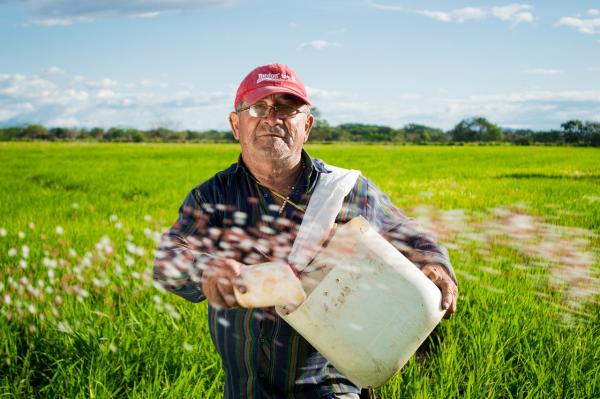“Protecting and growing the organic sector and the trusted USDA organic seal is a key part of the USDA Food Systems Transformation initiative.” [emphasis added]
- Under Secretary for Marketing and Regulatory Programs USDA Jenny Lester Moffitt
The national news has provided extensive coverage of the new USDA National Organic Program (NOP), Strengthening Organic Enforcement Action to strengthen the “oversight and enforcement of the production, handling, and sale of organic products.”
However, there is some significant hypocrisy - the hypocrisy is how this “trust” was established and whether they will be able to defend it.
Fraud: to unjustifiably claim or be credited with accomplishments or qualities
As I wrote in 2020, consumers purchase organics frequently based upon the belief organics are superior in terms of their safety, health, and nutritional benefits, but this has been exhaustively pointed out and needs not be repeated. [1] Credible, honorable, and reliable, all synonymous with trust, do not fit the history of the organic industry's marketing campaigns. A more suitable term the NOP should use is con. The NOP exploits consumer misunderstandings created by the organic industry themselves. Is it possible to trust the organic seal as the NOP program delusionally wants consumers to do?
Previously, I pointed out that in 2021, only 77 accredited certifying agents were authorized to police and certify 44,896 certified organic operations worldwide in 2019, of which 28,257 were located in the US. This would have been an overwhelming 583 operations per certifier. Additionally, NOP only required the certifiers to actually screen for pesticide residues on 5% of those operations. Even with this limited oversight, 326 growers had their certification suspended for non-compliance with organic standards in just six months.
What has changed for 2024 with the new and improved NOP, which the NOP believes should make us trust the organic label? Earlier this month, I asked the following questions to Jennifer Tucker, PhD, Deputy Administrator of the NOP.
- How many organic certifying agents are there in the US? Answer: 75, but this number can fluctuate as certifiers enter and exit certification. A current certifier head count can be found here.
- Does each certified organic farm get tested yearly by the certifier responsible for that area? Answer: “residue testing is conducted at a subset of business under the regulations.” In other words, no.
- Is the subset the 5% of certified farms as stated on the NOP site? Answer: “Yes, that is correct.”
There are currently 17,545 certified organic operations in the US, with a reported 8,436,921 acres growing crops or livestock. With 75 available certifiers responsible for testing for residues, this amounts to 12 of the 234 operations or 5,333 acres of the 106,666 they oversee. It would take 20 years to do a complete certification.
The changes under the new policy primarily affect certification once these crops have entered our wholesale food purchase and transportation system; the NOP program provides a significant loophole which will be evident to any scammer - due to the limited field testing of pesticide residues in the field of origin, who really knows what is entering the marketplace.
For example, I had a conversation with a local grape grower in Kern County who grows organic and conventionally grown grapes. He stated that in a previous year, 40 acres of his organic grapes became infected with mites, significantly enough to spray the grapes with an effective synthetic to salvage his grapes, losing his organic certification for three years for that acreage or losing the crop. He believed the obvious choice was to salvage the produce. Consequently, he did not attempt to pass the grapes off as organic. Still, he made the point that he could have because his now conventionally grown grapes were pesticide residue-free when they went to market, a very common occurrence as illustrated by the USDA annual pesticide residue testing program. [2]
- The basic premise of the organic industry's claim of a superior product is false.
- The new NOP program still provides enormous loopholes for fraudulent behavior due to the lack of oversight regarding what is leaving the field of origin and entering the market.
- The USDA’s pesticide residue testing program has demonstrated that a high percentage of conventionally grown crops would pass the residue test as organic due to the dissipation of the pesticide use at the time of harvest - passing off a conventionally grown product as organic would not be a difficult task for the less scrupulous grower.
While the USDA's National Organic Program (NOP) has taken steps to strengthen oversight and enforcement within the organic industry, significant challenges remain. Historical inconsistencies and loopholes persist, casting doubt on the integrity of organic certification. The disparity between the number of certifying agents and the vast number of certified organic operations underscores the difficulty in adequately monitoring and enforcing organic standards. Moreover, the limited field testing for pesticide residues raises questions about the authenticity of organic products entering the market. Ultimately, until comprehensive measures address these issues throughout the organic supply chain, the organic industry will not fully emerge from under the shadow of fraud.
[1] The Validity Of Much Of Published Scientific Research Is Questionable (Part 2), Americans’ Quest For ‘Authenticity’ Is Often Ill-Informed, Are Organic Foods More Nutritious?, and Are Organic Foods Safer? The Boy Who Cried Wolf
[2] A review by Food Fraud Advisors of the USDA data found that 9% of all tested “certified organic” crops sampled had at least one pesticide exceeding “‘the maximum amount of a pesticide allowed to remain in or on a food.”




